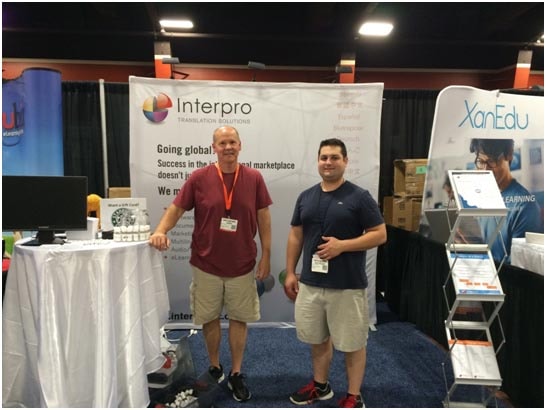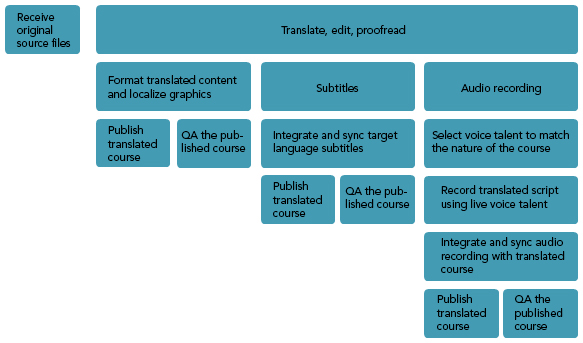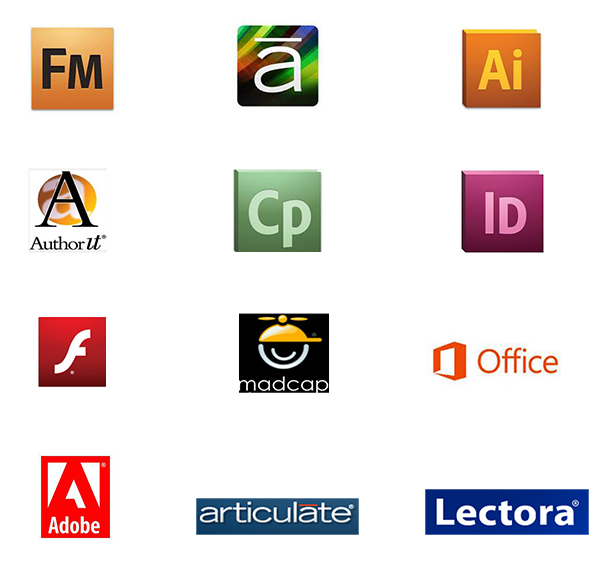
Our team recently attended the DevLearn Conference and Expo in Las Vegas. This was our first time attending this specific eLearning show, and it was one of the many eLearning Guild Conferences we intend to exhibit at. The theme of DevLearn was thinking forward and being innovative with online learning. As a professional eLearning localization services provider, we believe that offering multilingual eLearning courses to better reach your target audience is one of the many ways to think forward and stay relevant in a growing industry. We know that eLearning is just at its beginning stages of growth and the importance of educating in one’s native language is vital.
The DevLearn Conference and Expo had a massive turnout and we enjoyed meeting and chatting with eLearning professionals.
There were three questions that came up so often that we felt the need to write a blog answering them.
Top 3 eLearning localization questions from DevLearn
How does your eLearning localization process work? What if I have a course that needs to go into multiple languages?
When multiple languages are involved in eLearning localization, Interpro simplifies the process so all files are delivered back accurately and timely. With a partner network of over 2700 linguists and capabilities to translate into over 80 languages, our translation teams translate simultaneously and we deliver when quoted. There are cases where multiple courses are required to translate, and in these types of instances, we can deliver courses on a rolling basis as completed.
A simplified version of our eLearning localization workflow is below. First and foremost, we would ask for the original source files to scope out the project and ensure all elements in the course will be translated. We then go through a three step translation, editing, and proofreading process of the copy. Once all copy is translated, our desktop publishing team formats the translated content and localizes any graphics. Depending if your course needs subtitle translation services or audio localization services, the workflow will adjust accordingly. Ultimately, we would integrate and sync the target language subtitles or audio recording with the translated course.

What type of file formats can you work with?
As a company, we know how important it is to have experience with many types of file formats to ensure we can work with the files our clients send us. Having the expertise to handle many types of files is one of our differentiators, and for this reason, we aim to stay up to date with new programs and tools. This effort ensures a seamless translation integration with those programs. Some of the programs that we work with include but are not limited to:

How do you price eLearning localization services?
The cost of localization services are quoted based on word count, target language(s), file format, interactive elements syncing, desktop publishing (formatting), project management, subtitling, and audio recording.
If you are planning to use our audio recording localization services, factors that go into pricing include: professional studio time, directors, and professional voice talent. Professional voice talent is selected from our talent pool of native speakers. We help select the appropriate voice that goes with the nature of our client’s course.
If you have any questions about Interpro’s eLearning localization services or just want chat about the connection of eLearning and eLearning localization, give us a call. We would love to talk to you. You can also get in touch with me directly at (630) 245-7185 or cramage@interproinc.com.


